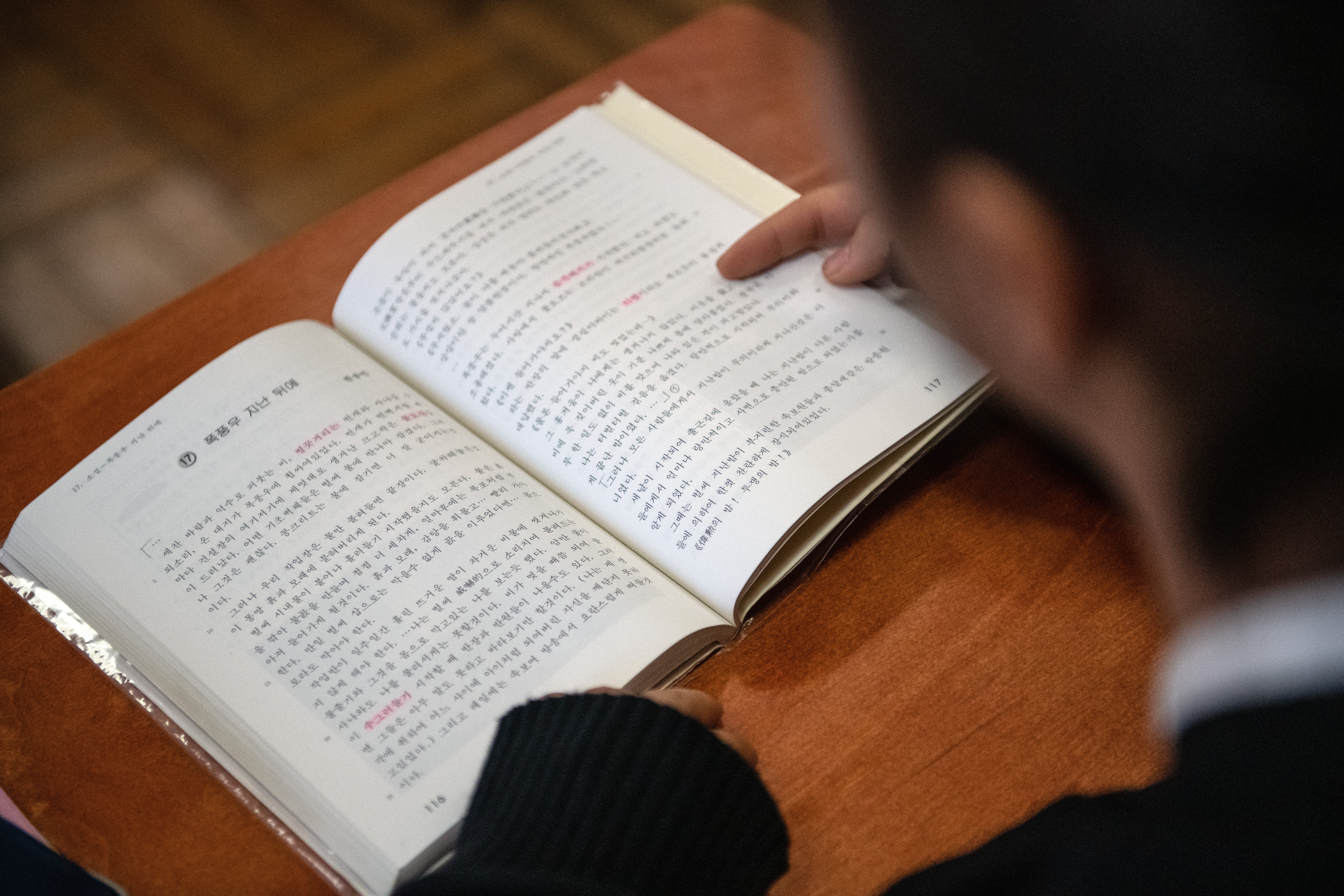Netflix hit show ‘Squid Game’ sparks interest in learning Korean
Language learning app Duolingo says they have seen a 76 per cent rise in new users signing up to learn Korean in the UK

Interest in learning Korean has spiked since the launch of hit Netflix show “Squid Game“, tutoring services reported, underscoring a growing global obsession with South Korean culture from entertainment to beauty products.
Language learning app Duolingo Inc said the nine-part thriller, in which cash-strapped contestants play deadly childhood games in a bid to win 45.6 billion won (£28.03 million), had spurred both beginners and existing students hoping to improve their skills.
Duolingo reported a 76 per cent rise in new users signing up to learn Korean in Britain and 40 per cent in the United States over the two weeks following the show’s premiere.
South Korea, Asia’s fourth-largest economy, has established itself as a global entertainment hub with its vibrant pop-culture, including the seven-member boy band BTS and movies such as Oscar winners “Parasite”, a black comedy about deepening inequality, and “Minari,” about a Korean immigrant family in the United States.
Just this week, the Oxford English Dictionary (OED) added 26 new words of Korean origin to its latest edition, including “hallyu”, or Korean wave, the term widely used to describe the global success of South Korean music, film, TV, fashion and food.
President Moon Jae-in this week welcomed the additions, calling “Hangeul”, the Korean alphabet, the country’s “soft power.”
“Language and culture are intrinsically connected and what happens in pop culture and media often influences trends in language and language learning,” Duolingo spokesman Sam Dalsimer said in an email.
“The rising global popularity of Korean music, film and television is increasing demand for learning Korean.”
There are around 77 million Korean speakers worldwide, according to the Korea Foundation for International Cultural Exchange.
Pittsburgh-based Duolingo said it has more than 7.9 million active users learning Korean, its second fastest growing language after Hindi.
The King Sejong Institute, which is run by South Korea’s culture ministry, had around 76,000 students in 82 countries last year, a rapid expansion from just 740 students in three countries in 2007.
Milica Martinovic, a Sejong Institute student in Russia, said she wanted to master the language so she could watch K-dramas without subtitles and listen to K-pop without needing translated lyrics.
Catarina Costa, a 24-year-old from Portugal living in Toronto, Canada, said the language had become more popular since she began learning it two years ago, when most of her friends did not understand why.
“People are fascinated when I say that I am learning Korean,” said Costa, who is using studying via the e-learning platform TalkToMeInKorean.
The program has 1.2 million members studying across 190 nations, learning words including those added to the OED, such as kimbap, a cooked rice dish wrapped in seaweed; mukbang, a video, often livestreamed, showing someone eating a large quantity of food, and; manhwa, a Korean genre of cartoons and comic books.
“There were thousands of people who wished to learn Korean even before Squid Game or the BTS craze, yet they were often studying in solitude,” said Sun Hyun-woo, founder of Talk To Me In Korean, a local e-learning platform with 1.2 million members studying Korean across 190 nations.
“Now they are part of a ‘global phenomenon’; learning Korean has turned into a much cooler pastime,” he said.
Reuters
Join our commenting forum
Join thought-provoking conversations, follow other Independent readers and see their replies
Comments
Bookmark popover
Removed from bookmarks